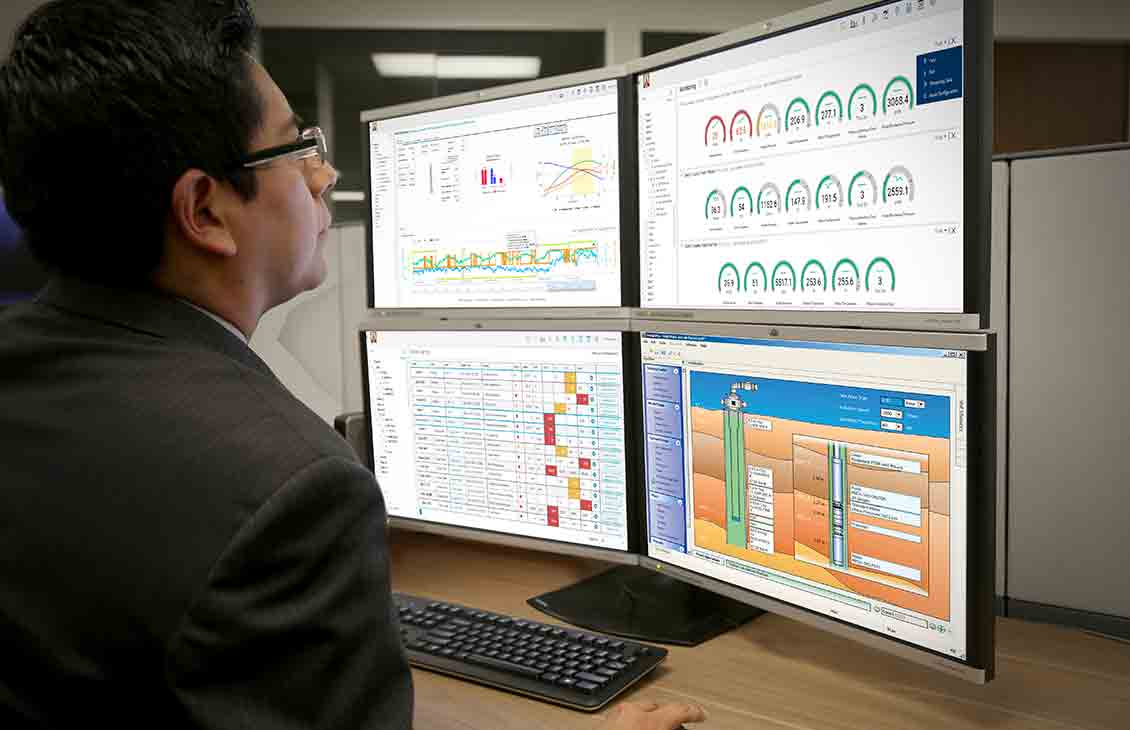Video On-Demand Webcast—Transform Your Frac Fluid Delivery System
Schlumberger and Enerplus experts present the success story of automation increasing effective pumping time.
Knowledge increases efficiency

Ever-improving efficiency brings shale reservoirs, tight gas and oil, and coalbed methane into the reach of more companies around the world.
Shale reservoirs can be complex and present many challenges, including
Careful selection of technologies and services is essential for long-term success, confident decisions, and increased operational efficiency in unique unconventional plays.
Significant quantities of gas and oil are located in many regions and countries. Localized supplies of gas are preferred for national power generation because of the relatively low transportation costs, while liberating liquids for export. As global development continues, the demand for affordable sources of power will also continue and natural gas is likely to best meet this need.
The challenge in tight gas and oil is reserve evaluation and effective stimulation for recovery. The very low porosities, often less than 10%, make finding and evaluating tight reservoirs difficult. This can lead to large uncertainties in reserves calculations, jeopardizing the sanctioning of the project. Once quantified, production of these tight reservoirs usually involves stimulation at great depths, which is a technical and economic challenge.
A carefully laid field development plan and evaluation of several contingency scenarios is the first step in meeting a tight reservoir challenge. Accurate measurements minimize uncertainties, enabling the best possible reserves estimates and tailoring of the completion procedure. The often high pressures and high temperatures encountered in the well construction phase and, more importantly, during completion require qualified tools, fluids, and expertise to do the job right the first time, economically draining the reservoir.


In one month in the Permian Basin, the Lift IQ service produced 3,582 bbl of oil that would otherwise have been deferred and cut ESP downtime in half.
Read Case Study
Coalbed methane, or coal seam gas (CSG), presents an attractive and abundant source of natural gas in several regions around the world—Australia, India, and the United States to note a few. This resource stream can be a significant feed to petrochemical or power generation plants because the relatively low extraction costs are economically advantageous.
Production of CBM wells can be difficult because the permeabilities of most coal seams are measured in millidarcies. Usually, large areas must be opened to flow, which can be problematic to achieve, and CBM production is associated with significant water production. This complicates lifting and surface separation. As the coal seam produces, physical changes taking place in the coal seam can accelerate or inhibit gas production and thus require close monitoring to ensure optimized production.
Schlumberger offers a comprehensive reservoir simulator for CBM, which is often the first step to evaluating a CBM project. Imaging and petrophysical evaluation suites are defined to identify the best portions of a coal seam to produce. Lightweight cements are readily formulated to achieve lasting hydraulic isolation in these often shallow, potentially unconsolidated formations. Specialized coal fracturing fluids are formulated to provide stimulation while reducing coal fines generation.